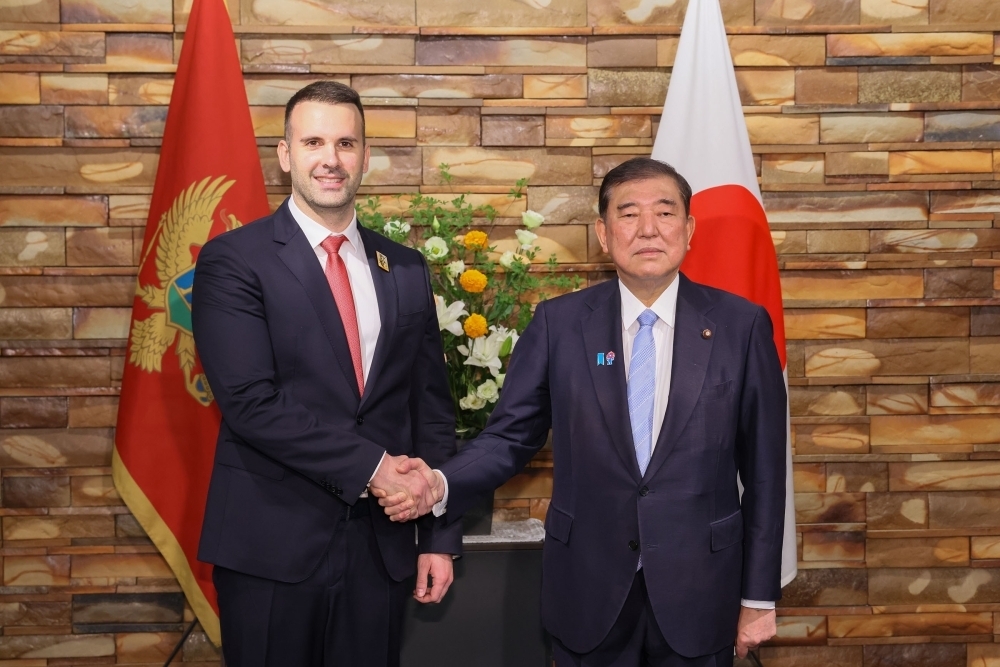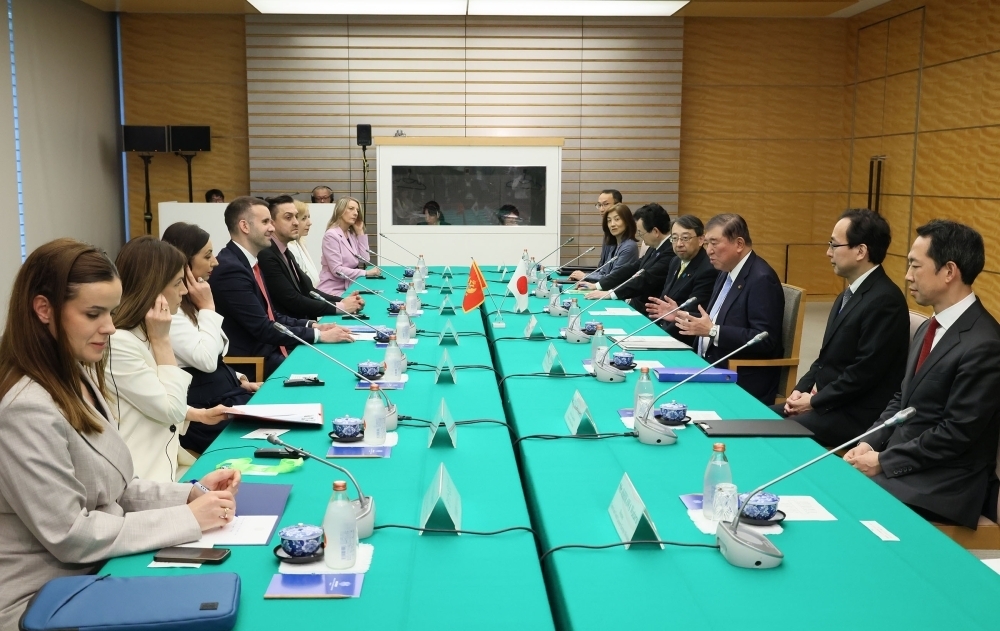Japan-Montenegro Relations
Japan-Montenegro Summit Meeting and Working Lunch
May 28, 2025
 (Photo: Cabinet Public Affairs Office)
(Photo: Cabinet Public Affairs Office)
 (Photo: Cabinet Public Affairs Office)
(Photo: Cabinet Public Affairs Office)
On May 28, commencing around 11:40 a.m. for approximately 30 minutes, Prime Minister ISHIBA Shigeru held a meeting with H.E. Mr. Milojko Spajić, Prime Minister of Montenegro, who is visiting Japan to participate in the National Day Event of EXPO 2025 OSAKA, KANSAI, Japan, followed by a working lunch held for approximately 50 minutes from 12:15 p.m. An overview of the events are as follows.
The meeting was held in Japanese without an interpreter.
1. Introduction:
- Prime Minister Ishiba welcomed Prime Minister Spajić, who has studied in Japan as a Japanese Government Scholarship student, to Japan and stated his desire to develop amicable bilateral relations with Montenegro, an important partner that shares values and principles as a NATO member country.
- In response, Prime Minister Spajić stated that through this visit to Japan, he would like to open a new stage in the friendly relations between the two coutries, and also stated that Montenegro shares values such as the rule of law and democracy with Japan, and supports Japan’s vision of a free and open international order.
2. Bilateral Relations:
- Prime Minister Ishiba stated that Montenegro is a frontrunner among candidate countries for EU membership and that Japan will continue to support Montenegro's EU accession process under the "Western Balkans Cooperation Initiative."
- In addition, Prime Minister Ishiba announced the introduction of Visa Waiver Measure for short-term stay in Japan for nationals of Montenegro in possession of ordinary passports from September 1st of this year, and expressed his expectation that this will further promote people-to-people exchanges between the two countries.
- Prime Minister Spajić expressed his gratitude for thecooperation that Japan has been implementing over the years, along with expectations for further development of economic relations between the two countries.
3. Regional Issues:
- The two leaders exchanged views on regional issues, including the situations in the Indo-Pacific and Ukraine.
- They agreed to cooperate in strengthening a free and open international order based on the rule of law in a wide range of areas, amid the inseparable security of the Euro-Atlantic and Indo-Pacific regions. They also agreed to work together in the context of Japan-NATO cooperation.

